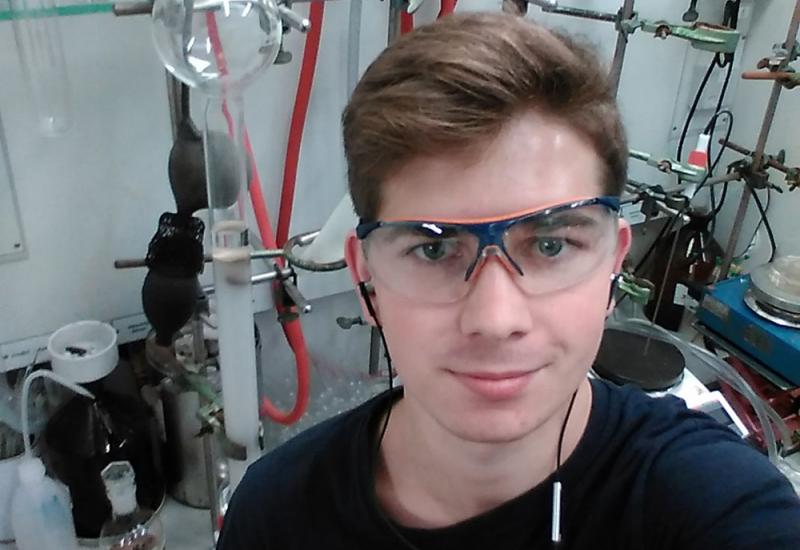Departments of OCh and TOR has quite developed international relations, carries out joint projects with foreign partners and sends students abroad for an exchange. The assistant of the department, a scientist with world affairs, Professor Andriy Fokin is a visiting professor at the Yustus Libyh University of Hessen. It was for his republication that I attended three-month practice at this university, in the group of Professor Peter Schreiner.
During my practice, I worked with graduate student Jan Berndt on his project to create regioselective rhodium catalysts. For the first time I was engaged in the development of catalyzers and obtained a significant useful benefit, because work with catalysts requires the highest accuracy both in terms of the formulation and the observance of optimal conditions for synthesis. For three months we have done a great deal of work, after the results of which wrote an article that will be published shortly.
Although the conditions in Hessen allow us to work more qualitatively and much faster than ours, the principle work of a chemist-scientist in the best laboratories is no different from that of our department. The research uses the same approaches, laboratory skills and methods of analysis. Therefore, I quickly settled down and surprised my colleagues with a high level of training. The fact is that non-undergraduate students during undergraduate studies master only elementary practical skills during laboratory work at the rate of organic chemistry. Yes, and in general, organic chemistry is considered to be a complex science and is not popular among students. In this respect, our department's students working in the first-year laboratories are significantly ahead of their German peers.

